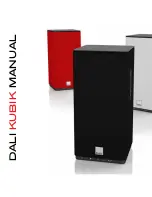
7
OPM-124/B
INSTALLATION
WARNING
Before proceeding with installation, be sure the
operation selector switch is in the stop position and the
battery disconnected.
These engine generator sets are designed to be mounted
on a pad where there is proper ventilation. The transfer
switch is mounted next to your electrical entrance or
distribution panel inside or outside the building. Consult
a qualified, licensed electrician or contractor to install and
wire the transfer switch. The installation must comply with
all national, state and local codes. Before beginning the
installation process check the rating of the generator set
and its transfer switch rating. Be certain they can handle
the intended load and are compatible with the entrance
voltage, phase and current ratings. Plans for installation
should be prepared with proper attention to mechanical
and electrical engineering detail to assure a satisfactory
system installation. The information in this manual is offered
only as a guide to finalizing your installation plans.
ENGINE-GENERATOR SET MOUNTING
WARNING: PERSONAL INJURY
The enclosures on these units can become very hot
adjacent to the exhaust areas. Special care must be
taken when installing these units to insure that the risk
of contact by people is minimized.
The unit’s main frame should be bolted to a pad that meets
local code. Various materials, including concrete and
composites, are acceptable as long as they are structurally
sound supporting the weight of the unit and preventing
movement during operation. The mounting holes on the
base of this unit is 0.688” in diameter. The engine-generator
is mounted on a sub-frame which is isolated with special
shock mounts on the main frame. This allows the engine-
generator to vibrate without affecting the control panel on
the main frame.
Do not install any shock mounts between the base frame
and the pad. Engine vibration will be transmitted to the
control panel causing erroneous start/stop cycles and
premature control failure.
These units should be mounted a minimum of 24” from a
structure. This will allow for ample room to maintain and
work on the generator set.
Units must be installed in accordance with all local, state,
and national codes. Consult your local agency for specific
requirements.
FUEL INSTALLATION
The fuel supply should be as close as possible to the
engine. This will reduce the installation cost of fuel runs.
The information in this manual is offered to assist you in
providing the proper fuel for your engine. However, this
information is only provided to inform you of the engine’s
requirements and assist in making you aware of the
decisions you must make. In no case should the instructions
and information provided be interpreted to conflict with
any local, state or national codes. If in doubt, always consult
your local fire marshal, gas supplier or building inspector.
WARNING: FIRE HAZARD
All fuel runs should be installed by a licensed fuel
supplier.
To connect the fuel line to the generator set you will
connect your incoming fuel line to the 1.25 inch NPT fitting
located on the rear cross-member of the engine-generator
set. This fitting is shipped with a plastic plug installed to
insure the fuel system stays clean. For all vapor fuel systems
the delivery pressure of the fuel to the fuel solenoid on the
unit must be four to six ounces psi (per square inch) or 7 to
11 inches
W.C. (water column). These fuel pressures are critical; failure
to provide the proper pressure can cause many problems
including failure to start, inability to produce full power, or
damage to the equipment.
These generators have been tested with both natural gas
and LP at the factory. Before starting the engine you must
verify it is configured for the proper fuel. See additional
information in the NG/LP conversion section.
INSTALLING THE FUEL LINE
NOTICE: The engine generator sets are properly adjusted
before they leave the factory. The electronic control panel
will indicate if the LP mode is active
NATURAL GAS or LP VAPOR PIPE SIZE
Size of pipe normally required for generators operating on
natural gas or LP vapor. Unit location will determine the
size of fuel line that is required to supply the engine with a
constant fuel pressure and volume.
LIQUID PROPANE VAPOR (LP)
Refer to the tables on the following pages for fuel line size
and recommended tank size. For distances of 25 feet or
over, a two regulator fuel system is recommended. This is
accomplished by installing a primary regulator at the tank
which will reduce the tank pressure down to 10 to 15 lbs.
A low pressure regulator is installed to further reduce the
fuel pressure to the required six (6) oz. operating pressure.
This low pressure regulator must be at least 10 feet from
the engine generator set; any closer installation will require
a larger line be installed to provide a fuel reservoir. This is
also true for the single low pressure regulator, it should
also be a minimum of 10 feet from the unit. If this is not
done, the demand regulator on the unit and the pressure
regulator in the fuel line will interfere with each other.
When the two (2) regulator system is used on LP, a fuel line
size of 3/4 to 1 inch is generally adequate for distances up
to 300 feet from the primary to the low pressure regulator.
Consult your local fuel supplier for your exact requirements
. The appropriate line size from the following table is then
installed from the low pressure regulator to the generator
set.
Feet*
Size of pipe
Up to 25 ft
1.25” pipe
Over 25 ft
Use a two regulator system
*Allow an additional 3 feet for each standard elbow.
DO NOT use ‘street ells’ (restrictive).
Содержание PSS150-17
Страница 22: ...22 OPM 124 B ENGINE HARNESS SCHEMATIC...








































